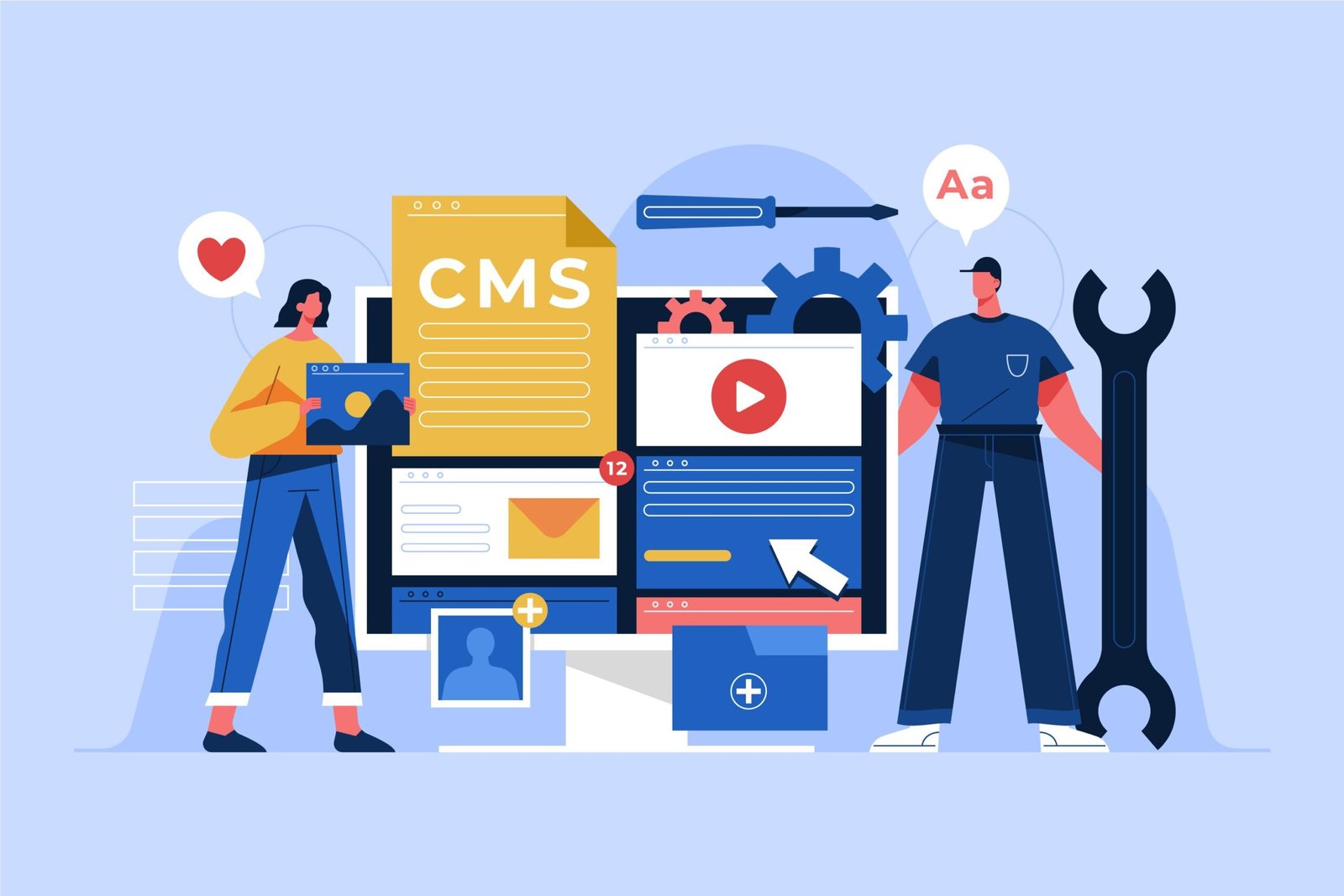Choosing the right content management system (CMS) for your website can be a daunting task, especially with so many options available. Here are some tips to help you make the right choice:
- Consider your needs: Think about the features and functionality you need for your website. Do you need a CMS with a built-in e-commerce platform? A blog? A content editor? A CMS that’s easy to use for non-technical users? Make a list of the features you need, and prioritize them in order of importance.
- Assess your budget: CMS platforms can range from free and open-source to enterprise-level solutions that cost thousands of dollars. Consider how much you’re willing to spend on a CMS and choose a platform that fits within your budget.
- Check out user reviews: Research user reviews and ratings for different CMS platforms. Look for platforms with positive reviews and a large user base. This can give you an idea of how well the CMS performs in real-world scenarios.
- Evaluate the learning curve: Consider how easy the CMS is to use and how long it will take to learn. Some CMS platforms are user-friendly and require little to no coding knowledge, while others are more complex and require technical expertise.
- Look at the available plugins and add-ons: Many CMS platforms have a wide range of plugins and add-ons available that can enhance the functionality of your website. Make sure the CMS you choose has the plugins you need.
- Consider scalability: If you plan to grow your website in the future, it’s important to choose a CMS that can scale with your needs. Look for a CMS that can handle increased traffic and content volume without sacrificing performance.
- Think about security: Website security is critical, and a CMS with vulnerabilities can put your website and users at risk. Look for a CMS that has a strong security track record and provides regular updates and patches.
Some popular CMS options to consider include:
- WordPress: A free and open-source platform that’s easy to use and highly customizable. WordPress powers over 40% of all websites on the internet.
- Drupal: A powerful, open-source CMS that’s known for its flexibility and scalability. It’s popular among large organizations and government agencies.
- Joomla: An open-source CMS that’s user-friendly and highly customizable. It’s often used for e-commerce websites and online magazines.
- Shopify: An e-commerce platform that’s easy to use and highly customizable. It’s popular among small and medium-sized businesses.
- Squarespace: A website builder and CMS that’s known for its sleek and modern designs. It’s user-friendly and ideal for small businesses and portfolios.
By considering your needs, budget, and other factors, you can choose the CMS that’s right for your website and ensure a successful online presence.





